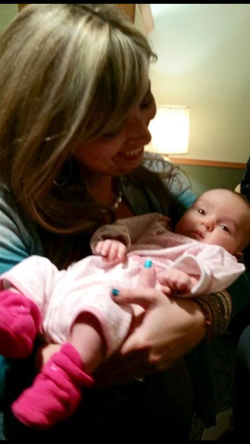The FSH or Follicle Stimulating Hormone helps doctors see that you’re still ovulating regularly. The AMH or Anti-Mullerian Hormone helps show the supply of viable eggs. When you have these tests matter; the numbers can fluctuate based on the time of month, but there are possibly other factors as well. Diet and exercise always matter. Another thing that matters is stress.
Stress is a huge factor in fertility at any age. While practices like yoga and acupuncture help manage stress, along with proper diet and exercise, you must have a good support system in place, not to mention a healthy, stable living environment. It would seem to go without saying that you’d need a partner you can trust, but for many of us, that’s not possible when conception is.
IVF or In-Vitro Fertilization, which uses an almost 200% increase in estrogen to help doctors harvest eggs in order to fertilize them outside of the womb, may be out of the question for some women. But IUI or Intra-Uterine Insemination is completely safe for all. With minor progesterone adjustments, and, after the use of ultrasound to track things like ovulation and the location of follicles or eggs, doctors can use a catheter to get your partner’s or donor’s sperm to the exact right location. It can be very effective, almost 20% more so than standard intercourse. But there are a few rules before you can begin any fertility regimen.
First and foremost, you need to be healthy. Body fat matters. What you eat matters. How you exercise matters. And of course, you have to be free of all forms of birth control for at least a year. Most fertility doctors will require you get tested for disease prior to considering any treatment. You’d also get checked for things like cholesterol and blood sugar. Anyone over 40 should be followed by a high-risk management team of fertility specialists. It’s important to identify your team before beginning your journey. You want to work with people you find supportive all-around. Because sometimes, best efforts in fertility can still lead to miscarriage.
Depending on how far along you are, losing a baby can be a heartbreaking experience. I wrote about mine in December 2014. At the time, I was dealing with so many challenges, it was hard to absorb all that happened. But it’s important to not let a fertility set-back keep you from your life-goals. That includes silencing the nay-sayers as well.
If I listened to every idiot out there, I’d never have gotten this far in life. Leaders don’t follow the rules; we create our own. That’s why we’re not followers, outside of perhaps things like Twitter. Confidence is definitely something every woman needs when it comes to her fertility. Do not let a single soul tell you that you can’t have a baby. If you want a baby, you can have one. There are so many options today. Whether you’re married or not, you can do it.
My recommendation to ALL women between ages 20 and 30 is to invest in freezing your eggs and protect your fertility. It’s an investment parents, particularly of daughters, should save for along with college tuition. It can cost upwards of $7,500-$16,000, depending on where you live, how many cycles you harvest, etc., but it is well worth the expense.
One day, you’ll be sitting on the other side of all of your life accomplishments hoping to achieve the most important one of all: Motherhood. Know the facts about fertility and a healthy baby is in your future. Guaranteed.



 RSS Feed
RSS Feed